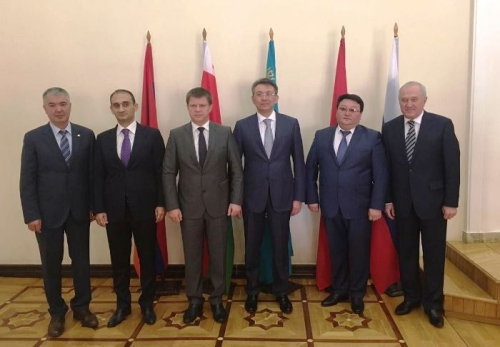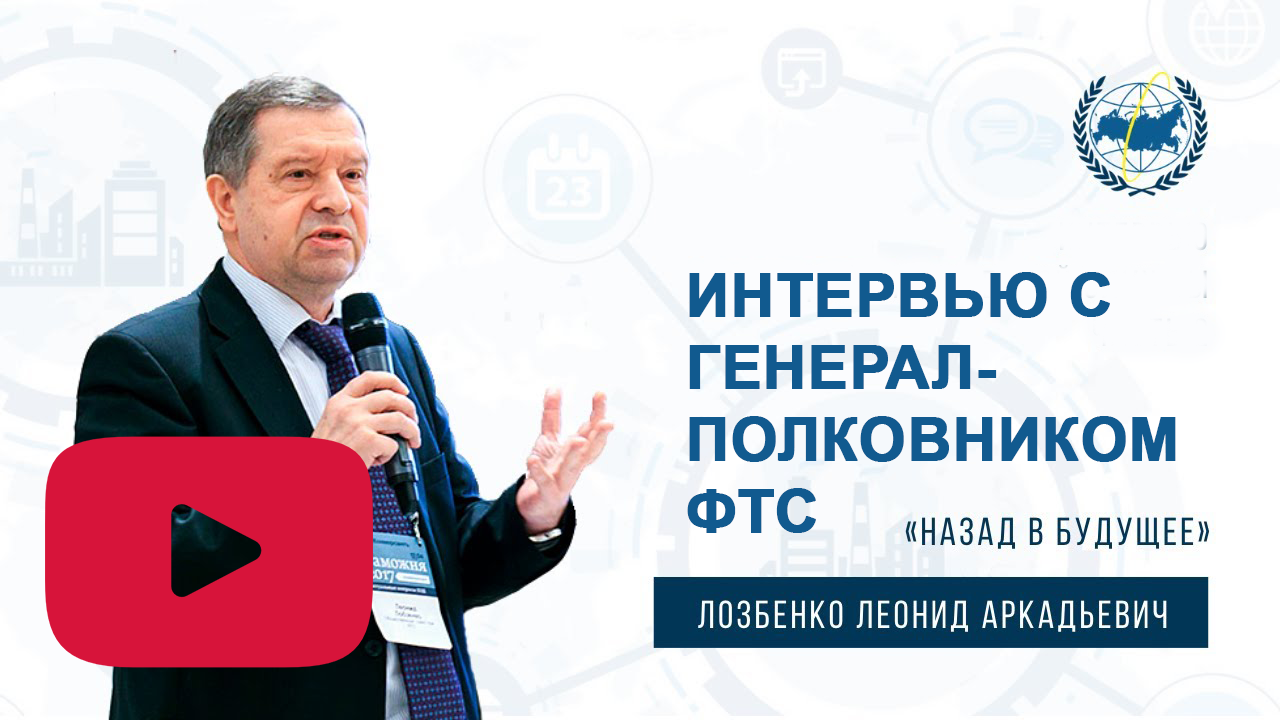
September 28, 2017 in Yerevan (Republic of Armenia), under the chairmanship of the head of the Federal Customs Service Vladimir Bulavin, the 24th meeting of the Joint Collegium of Customs Services of the Member States of the Customs Union was held. Heads of customs services of the member states of the Eurasian Economic Union, as well as member of the Collegium of the Eurasian Economic Commission (Minister) for customs cooperation Mukai Kadyrkulov took part in its work.
The Joint Collegium considered topical issues aimed at creating favorable business conditions through the introduction of unified information technologies, as well as simplifying the movement of goods and vehicles by citizens.
At the meeting of the collegium, proposals were developed to coordinate work on accession to the general “technological” processes (control over the transit movement of goods, confirmation of the actual export of goods and control over the temporary importation of vehicles of international transport and vehicles for personal use). At the same time, organizational and technical measures were identified to improve the quality of information interaction while monitoring the temporary importation of vehicles.
In the development of the provisions of the Customs Code of the EAEC, at the last meeting, the Methodological Recommendations for determining the amount of security for customs duties and taxes were approved. These methodological recommendations are aimed at unifying the approaches of customs authorities in determining the amount of security for payment of customs duties and taxes.
The Board approved the terms and definitions recommended for use by the customs authorities of the EEA member states. This eliminates the ambiguous understanding and interpretation of the concepts used when accounting for customs and other payments administered by the customs authorities of the EEA member states.
The meeting of the Collegium presents the experience of the FCS of Russia in centralizing the payment and accounting of customs and other payments, under which the main operations for the recording of cash are made at the level of the FCS of Russia. Participants in foreign economic activity at the same time get the opportunity to pay customs duties and taxes on personal accounts opened at the level of the FCS of Russia and their use in customs declaration of goods in any customs body of Russia. An additional advantage of centralized payment and registration of customs payments for participants in foreign economic activity is the ability to receive reports on the expenditure and flow of funds and to file an application for the return of advance cash in any customs authority.
Special attention was paid to the issues of uniform definition of the customs value of goods imported to the territory of the EEMP from China. It was noted that declaring goods with an understating of their customs value creates the risk of non-payment in full of customs duties and taxes and a decrease in revenues to the consolidated budget of the EEU member states.
Clarifications were clarified on the classification in accordance with the single Commodity Nomenclature of Foreign Economic Activity of the EEU of a number of goods, according to which there was a practice of different classification when they were declared in different customs bodies of the EEU. Clarifications will help to reduce the number of litigation related to the difference in law enforcement practice in the classification of goods.
The uniform criteria applied to goods moved by individuals for personal use were agreed upon. As such criteria, it is planned to take into account the frequency of crossing an individual’s customs border, the period of stay abroad, the name and quantity of imported goods, as well as other criteria. This is aimed at minimizing the risk of non-payment of customs payments by individuals.
At the end of the meeting of the Joint Collegium of the Head of the Federal Customs Service Vladimir Bulavin, the President of Armenia received Serzh Sargsyan. Vladimir Bulavin expressed his gratitude for the high level of organization and holding of the session of the Joint Collegium, noting that within the framework of the ambitious agenda work was done, the results of which will contribute to solving the tasks facing the customs services at a high level and deepening integration within the framework of the EEU.
The next meeting of the Joint Collegium was decided to be held in the fourth quarter of 2017 in the Kyrgyz Republic.
Source: vch.ru




